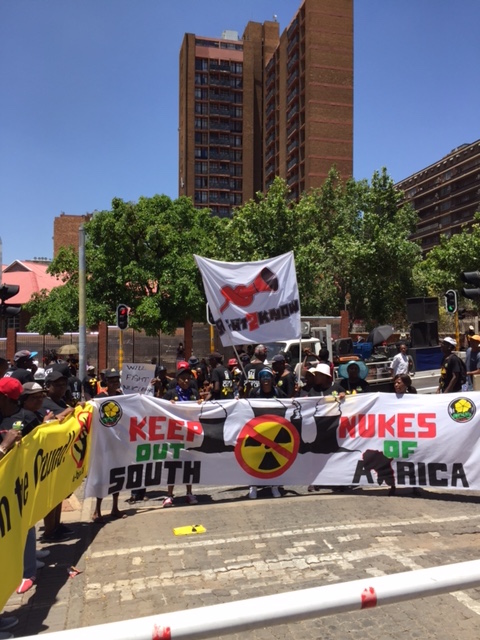Environmental groups win big against South Africa nuclear plants
 Secret plans to build new nuclear reactors in South Africa that were never subjected to an open, transparent and public process, have been quashed by a judge in Cape Town in a major victory for anti-nuclear and environmental groups there. David Fig, a leading academic and advocate against nuclear energy, wrote this analysis for The Conversation. The opening paragraphs are below. Read the full article here.
Secret plans to build new nuclear reactors in South Africa that were never subjected to an open, transparent and public process, have been quashed by a judge in Cape Town in a major victory for anti-nuclear and environmental groups there. David Fig, a leading academic and advocate against nuclear energy, wrote this analysis for The Conversation. The opening paragraphs are below. Read the full article here.
On 26 April 2017, coincidentally the 31stanniversary of the Chernobyl disaster, the Cape High Court presented its judgement on the case brought by Earthlife Africa Johannesburg and the Southern Africa Faith-Communities’ Environmental Institute. The two NGOs were challenging the way in which the state has determined that we should be purchasing 9600 megawatts of extra nuclear power. The judge, Lee Bozalek, used terms like ‘unconstitutional’ and ‘illegal’ to refer to the state’s behaviour and declared invalid the steps taken by the state.
What has been deemed illegal are the state’s determinations that the nuclear build go ahead, its handing over of the procurement process to Eskom, the regulator NERSA’s automatic endorsement of the state’s plans, and the secretive agreement with Russia and two others with the US and South Korea on nuclear co-operation. Eskom’s request for information from nuclear vendors, a step taken to prepare the procurement, which ends on 28 April, is also invalid.
Government will have to start again on all these procedures if it is serious about going ahead with the nuclear build. To do so legally, it will have to open up the process to detailed public scrutiny. The regulator will have to have a series of public hearings before the country can endorse its historically highest ever spend on infrastructure estimated at well over R1 trillion. The international agreements will have to be brought before the scrutiny of parliament. Continued.





 April 28, 2017
April 28, 2017